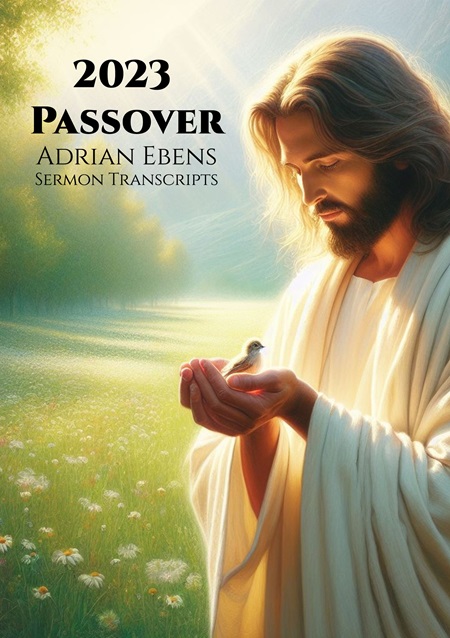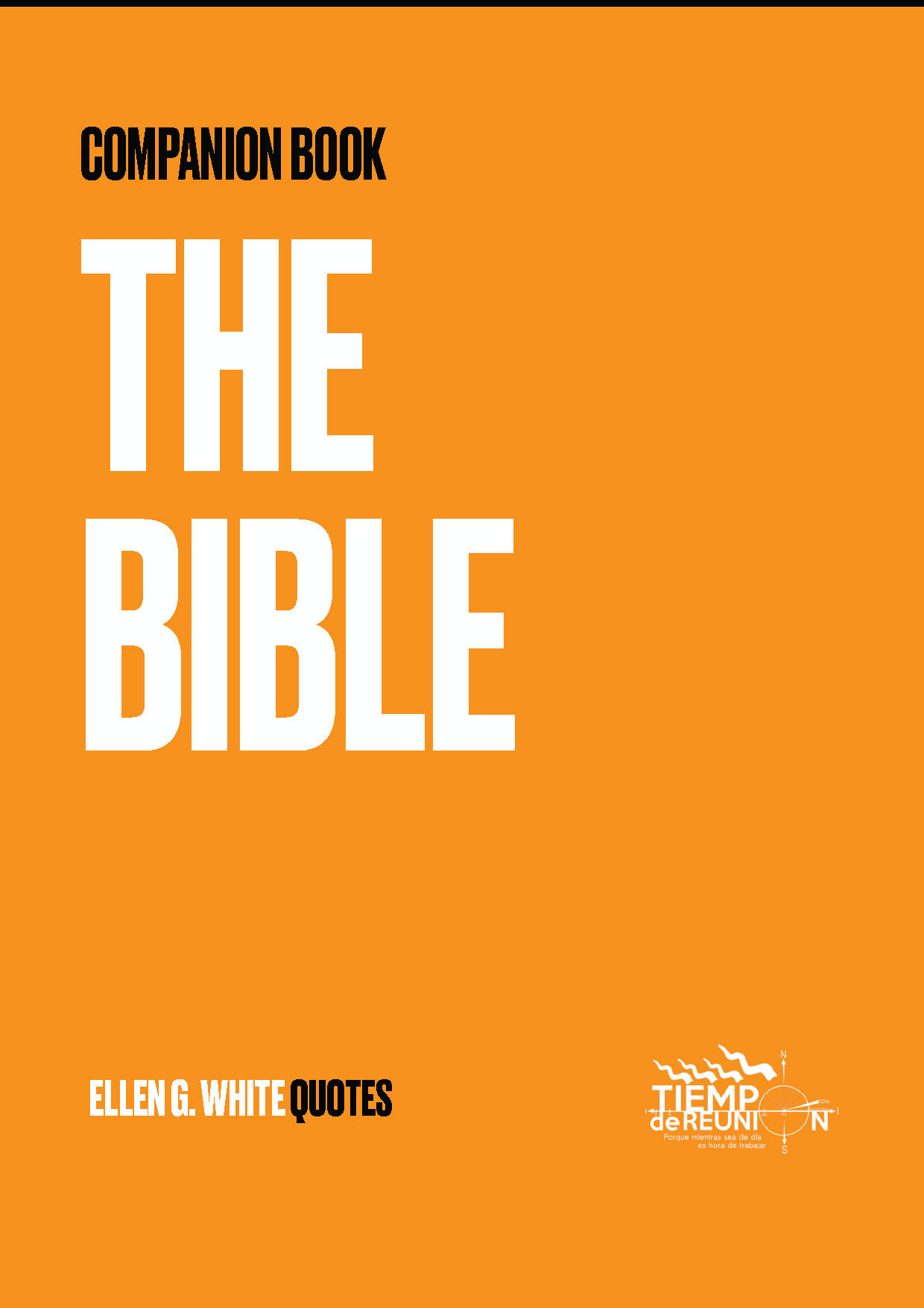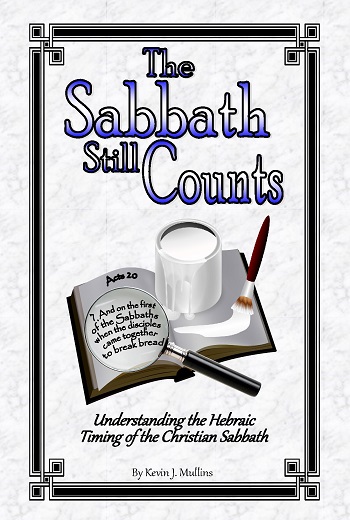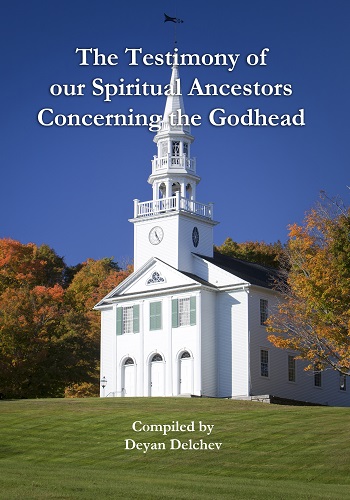In Him was life, original, unborrowed, underived life.
We all know this phrase all to well, don't we? It "proves", that the life of Jesus was His life alone. Ever. It is not derived from anyone else - at least trinitarians claim this because of the use of the word "underived".
One can argue both sides from this quote. It also shows that the life comes from the Father. Joh 5,26: "For as the Father has life in himself; so has he given to the Son to have life in himself." And when we read on we discover that Ellen White wrote, that this life can be given to the forgiven sinner. So what should it be?
Either the Bible is correct that the life of Jesus is derived from the life of the Father. Or Ellen White shows that Joh 5,26 should not be understood literally. Or at least not literally in relation to the divine life of Christ before his incarnation. But then what does she mean by this life given to the forgiven sinner?
In my recent study of the context of these verses and quotes I discovered, that the Bible actually uses two different greek words for "life".
G2222: zoe
G5590: psuche
What is the difference? zoe is always translated with "life". psuche can be translated either "life" or "soul". psuche means the actual state of living right now. One is alive. One is a living soul. zoe is life in a broader sense. "Lifesource" or the whole "life span" would be an accurate translation.
We can see the difference in the following verses.
Mt 6,25: "Therefore I say unto you, Take no thought for your life (psuche), what ye shall eat, or what ye shall drink; nor yet for your body, what ye shall put on. Is not the life (psuche) more than meat, and the body than raiment?"
Joh 12,25: "He that loveth his life (psuche) shall lose it; and he that hateth his life (psuche) in this world shall keep it unto life (zoe) eternal (aionios)."
John also informs us, that Jesus posessed zoe. Joh 1,4: "In him was life (zoe); and the life (zoe) was the light of men." Joh 5,26: "For as the Father hath life (zoe) in himself; so hath he given to the Son to have life (zoe) in himself;" Joh 6,57: "As the living (G2198: zao) Father hath sent me, and I live (zao) by the Father: so he that eateth me, even he shall live (zao) by me." Joh 14,6: "Jesus saith unto him, I am the way, the truth, and the life (zoe): no man cometh unto the Father, but by me."
Now, one would think, that these are simply two kinds of life. But that is not the case, because the Bible informs us, what Jesus laid down at the cross. And it was not his zoe! it was his psuche! Jesus had both: a zoe and a psuche. A source of life (zoe) and his acutal life (psuche). He was a living soul.
Mt 20,28: "Even as the Son of man came not to be ministered unto, but to minister, and to give his life (psuche) a ransom for many."
Mk 10,45: "For even the Son of man came not to be ministered unto, but to minister, and to give his life (psuche) a ransom for many."
Joh 10,11.15.17: "11I am the good shepherd: the good shepherd giveth his life (psuche) for the sheep. 15As the Father knoweth me, even so know I the Father: and I lay down my life (psuche) for the sheep. 17Therefore doth my Father love me, because I lay down my life (psuche), that I might take it again."
This is especially interesting because we have verse 18 following and it says: "No man taketh it from me, but I lay it down of myself. I have power to lay it down, and I have power to take it again. This commandment have I received of my Father."
No one could take the psuche of Jesus off of him. Why? Because he inherited a source for this psuche: his own zoe, his own source of life.
With that in mind, lets read again what Ellen White wrote about this original, unborrowed, underived life: (greek words in [] added by me)
"“In him was life (zoe); and the life (zoe) was the light of men” (John 1:4). It is not physical life [psuche] that is here specified, but immortality, the life [zoe] which is exclusively the property of God. The Word, who was with God, and who was God, had this life [zoe]. Physical life [psuche] is something which each individual receives. It is not eternal or immortal; for God, the Life-giver, takes it again. Man has no control over his life [psuche]. But the life [psuche] of Christ was unborrowed. No one can take this life [psuche] from Him. “I lay it down of myself” (John 10:18), He said. In Him was life [zoe], original, unborrowed, underived. This life [zoe] is not inherent in man. He can possess it only through Christ. He cannot earn it; it is given him as a free gift if he will believe in Christ as His personal Saviour. “This is life (zoe) eternal, that they might know thee the only true God, and Jesus Christ, whom thou hast sent” (John 17:3). This is the open fountain of life [zoe] for the world." {1SM 296.2}
I think, we now can understand what Ellen White meant when she wrote in "Desire of Ages": "In these words is set forth the great principle which is the law of life for the universe. All things Christ received from God, but He took to give. So in the heavenly courts, in His ministry for all created beings: through the beloved Son, the Father’s life flows out to all; through the Son it returns ... ." {DA 21.2}
And we should not forget, that this does not only apply to us sinners, but to ALL created beings. So when did the Father give His life to His Son?
"From Jesus is our life derived. In him is life that is original,--unborrowed, underived life. In him is the fountain of life. In us there is a streamlet from the fountain of life. Our life is something that we receive, something that the Giver takes back again to himself. If our life is hid with Christ in God, we shall, when Christ shall appear, also appear with him in glory. And while in this world, we shall give to God, in sanctified service, all the capabilities he has given us." {R&H, July 30, 1914}
The words "original, unborrowed, underived" were not meant to mean that this life is "original, unborrowed, underived" within Christ, but they are a description of what zoe is; what the characteristics of zoe are. It is a kind of life that produces life without an external cause. Therfore this kind of life is orginal in itself, it is unborrowed and underived from an external cause when it produces life. The Father took this life and gave it to his Son. There it now is and produces original, unborrowed and underived life in itself - and sustains Christs psuche - and if we are in him our psuche as well... .





